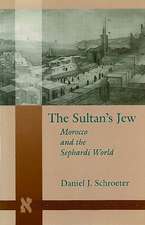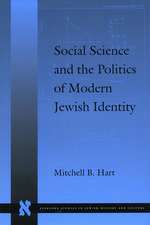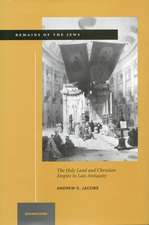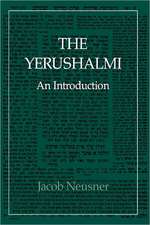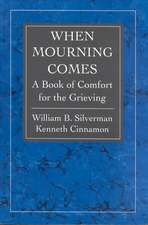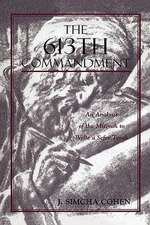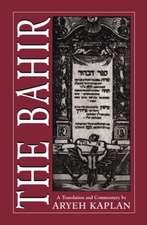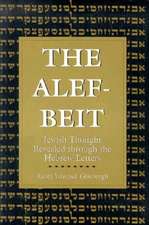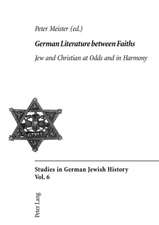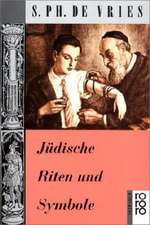Menstrual Purity: Rabbinic and Christian Reconstructions of Biblical Gender: Contraversions: Jews and Other Differences
Autor Charlotte Fonroberten Limba Engleză Paperback – 2002
Perhaps more than any other aspect of rabbinic literature, the laws about and discussions of menstruation have polarized current discussions of gender relations in Jewish culture. Is the designated impurity of menstruation sexist? Or does ritual absence from sex during menstruation encourage a rhythmic reaffirmation of conjugal intimacy?
This book offers a new perspective on the extensive rabbinic discussions of menstrual impurity, female physiology, and anatomy, and on the social and religious institutions those discussions engendered. It analyzes the functions of these discussions within the larger textual world of rabbinic literature and in the context of Jewish and Christian culture in late antiquity.
How did gender work—how was it made to work—in rabbinic literature? How did that literature dictate the place of women in Jewish culture? In search of answers to these questions, the author analyzes the architectural metaphors deployed to describe female anatomy, arguing that this discursive construction operated culturally to associate women with the home and exclude them from rabbinic study halls.
The author shows that rabbinic discourse is not completely controlled by rabbinic ideology, however. She analyzes talmudic discussions that allow alternative gender perspectives to emerge, indicating that women and their bodies were not completely objectified. This suggests that the Babylonian Talmud does not present a completely homogeneous gender structure, but contains a number of different, sometimes contradictory, possibilities.
The book concludes with a study of early Christian texts that relate to the same biblical laws on menstrual impurity as rabbinic texts, focusing in particular on a Jewish-Christian text in which the anonymous author polemicizes against Jewish women converts who remain attached to the biblical laws. This text allows us to reconstruct women’s perspectives on the inscription of religious meaning onto their bodies and physiological processes.
This book offers a new perspective on the extensive rabbinic discussions of menstrual impurity, female physiology, and anatomy, and on the social and religious institutions those discussions engendered. It analyzes the functions of these discussions within the larger textual world of rabbinic literature and in the context of Jewish and Christian culture in late antiquity.
How did gender work—how was it made to work—in rabbinic literature? How did that literature dictate the place of women in Jewish culture? In search of answers to these questions, the author analyzes the architectural metaphors deployed to describe female anatomy, arguing that this discursive construction operated culturally to associate women with the home and exclude them from rabbinic study halls.
The author shows that rabbinic discourse is not completely controlled by rabbinic ideology, however. She analyzes talmudic discussions that allow alternative gender perspectives to emerge, indicating that women and their bodies were not completely objectified. This suggests that the Babylonian Talmud does not present a completely homogeneous gender structure, but contains a number of different, sometimes contradictory, possibilities.
The book concludes with a study of early Christian texts that relate to the same biblical laws on menstrual impurity as rabbinic texts, focusing in particular on a Jewish-Christian text in which the anonymous author polemicizes against Jewish women converts who remain attached to the biblical laws. This text allows us to reconstruct women’s perspectives on the inscription of religious meaning onto their bodies and physiological processes.
| Toate formatele și edițiile | Preț | Express |
|---|---|---|
| Paperback (1) | 212.22 lei 3-5 săpt. | |
| Stanford University Press – 2002 | 212.22 lei 3-5 săpt. | |
| Hardback (1) | 725.00 lei 6-8 săpt. | |
| Stanford University Press – 30 sep 2000 | 725.00 lei 6-8 săpt. |
Din seria Contraversions: Jews and Other Differences
-
 Preț: 220.91 lei
Preț: 220.91 lei -
 Preț: 267.56 lei
Preț: 267.56 lei - 19%
 Preț: 587.79 lei
Preț: 587.79 lei -
 Preț: 203.20 lei
Preț: 203.20 lei -
 Preț: 248.93 lei
Preț: 248.93 lei -
 Preț: 158.52 lei
Preț: 158.52 lei -
 Preț: 248.06 lei
Preț: 248.06 lei -
 Preț: 189.66 lei
Preț: 189.66 lei - 19%
 Preț: 644.84 lei
Preț: 644.84 lei -
 Preț: 227.27 lei
Preț: 227.27 lei -
 Preț: 266.87 lei
Preț: 266.87 lei - 19%
 Preț: 597.00 lei
Preț: 597.00 lei -
 Preț: 224.94 lei
Preț: 224.94 lei - 19%
 Preț: 511.05 lei
Preț: 511.05 lei - 19%
 Preț: 445.54 lei
Preț: 445.54 lei - 19%
 Preț: 475.32 lei
Preț: 475.32 lei -
 Preț: 263.05 lei
Preț: 263.05 lei -
 Preț: 521.36 lei
Preț: 521.36 lei
Preț: 212.22 lei
Nou
Puncte Express: 318
Preț estimativ în valută:
40.61€ • 44.10$ • 34.11£
40.61€ • 44.10$ • 34.11£
Carte disponibilă
Livrare economică 01-15 aprilie
Preluare comenzi: 021 569.72.76
Specificații
ISBN-13: 9780804745536
ISBN-10: 0804745536
Pagini: 344
Dimensiuni: 152 x 229 x 25 mm
Greutate: 0.48 kg
Ediția:1
Editura: Stanford University Press
Colecția Stanford University Press
Seria Contraversions: Jews and Other Differences
ISBN-10: 0804745536
Pagini: 344
Dimensiuni: 152 x 229 x 25 mm
Greutate: 0.48 kg
Ediția:1
Editura: Stanford University Press
Colecția Stanford University Press
Seria Contraversions: Jews and Other Differences
Recenzii
"This book is of central importance in the field of Rabbinic studies and the history of Judaism in late antiquity. The originality of Fonrobert's work lies in the skill and nuance with which she brings a series of reading strategies and hermeneutical perspectives to Rabbinic texts."—Martin S. Jaffe, University of Washington
"Fonrobert's analysis throughout is sophisticated and nuanced, avoiding false dichotomies between rabbis as good for or bad for women, looking instead for ways to talk about traditional texts about women and their bodies in new and productive ways that do not define women solely in terms of male-centered discourse. . . . Challenging and illuminating . . . Fonrobert's work is an important contribution to the study of an area of Jewish ritual and gender that is at once sensitive to the complexities of the traditional sources and to the contemporary significance of her inquiries."—The Forward
"Among the many complex, technical and obscure topics in the study of the Bible and early Judaism and Christianity, purity remains as perhaps the most recalcitrant. . . . [Charlotte Elisheva Fonrobert's Mentrual Purity, and Jonathan Klawans's Impurity and Sin in Ancient Judaism] are thus particularly welcome—both are revised dissertations as well as co-winners of the 2001/2 Salo W. Barton Book Prize of the American Academy for Jewish Research. Both books do an exemplary job of revitalizing the study of purity in antiquity and demonstrating how the combination of careful scholarship with modern methodological approaches can create new insights into an exceedingly difficult topic."—Journal of Jewish Studies
"...Fonrobert's book is a ground-breaking study that channels the research
of talmudic literature into a new and promising scholarly direction."—Prooftexts
Notă biografică
Charlotte Elisheva Fonrobert is Assistant Professor of Religious Studies at Stanford University.
Textul de pe ultima copertă
“This book is of central importance in the field of Rabbinic studies and the history of Judaism in late antiquity. The originality of Fonrobert’s work lies in the skill and nuance with which she brings a series of reading strategies and hermeneutical perspectives to Rabbinic texts.”—Martin S. Jaffe, University of Washington
“Fonrobert’s analysis throughout is sophisticated and nuanced, avoiding false dichotomies between rabbis as good for or bad for women, looking instead for ways to talk about traditional texts about women and their bodies in new and productive ways that do not define women solely in terms of male-centered discourse. . . . Challenging and illuminating . . . Fonrobert’s work is an important contribution to the study of an area of Jewish ritual and gender that is at once sensitive to the complexities of the traditional sources and to the contemporary significance of her inquiries.”—The Forward
“Fonrobert’s analysis throughout is sophisticated and nuanced, avoiding false dichotomies between rabbis as good for or bad for women, looking instead for ways to talk about traditional texts about women and their bodies in new and productive ways that do not define women solely in terms of male-centered discourse. . . . Challenging and illuminating . . . Fonrobert’s work is an important contribution to the study of an area of Jewish ritual and gender that is at once sensitive to the complexities of the traditional sources and to the contemporary significance of her inquiries.”—The Forward
Descriere
This book offers a new perspective on the extensive rabbinic discussions of menstrual impurity, female physiology, and anatomy, and on the social and religious institutions those discussions engendered. It analyzes the functions of these discussions within the larger textual world of rabbinic literature and in the context of Jewish and Christian culture in late antiquity.




